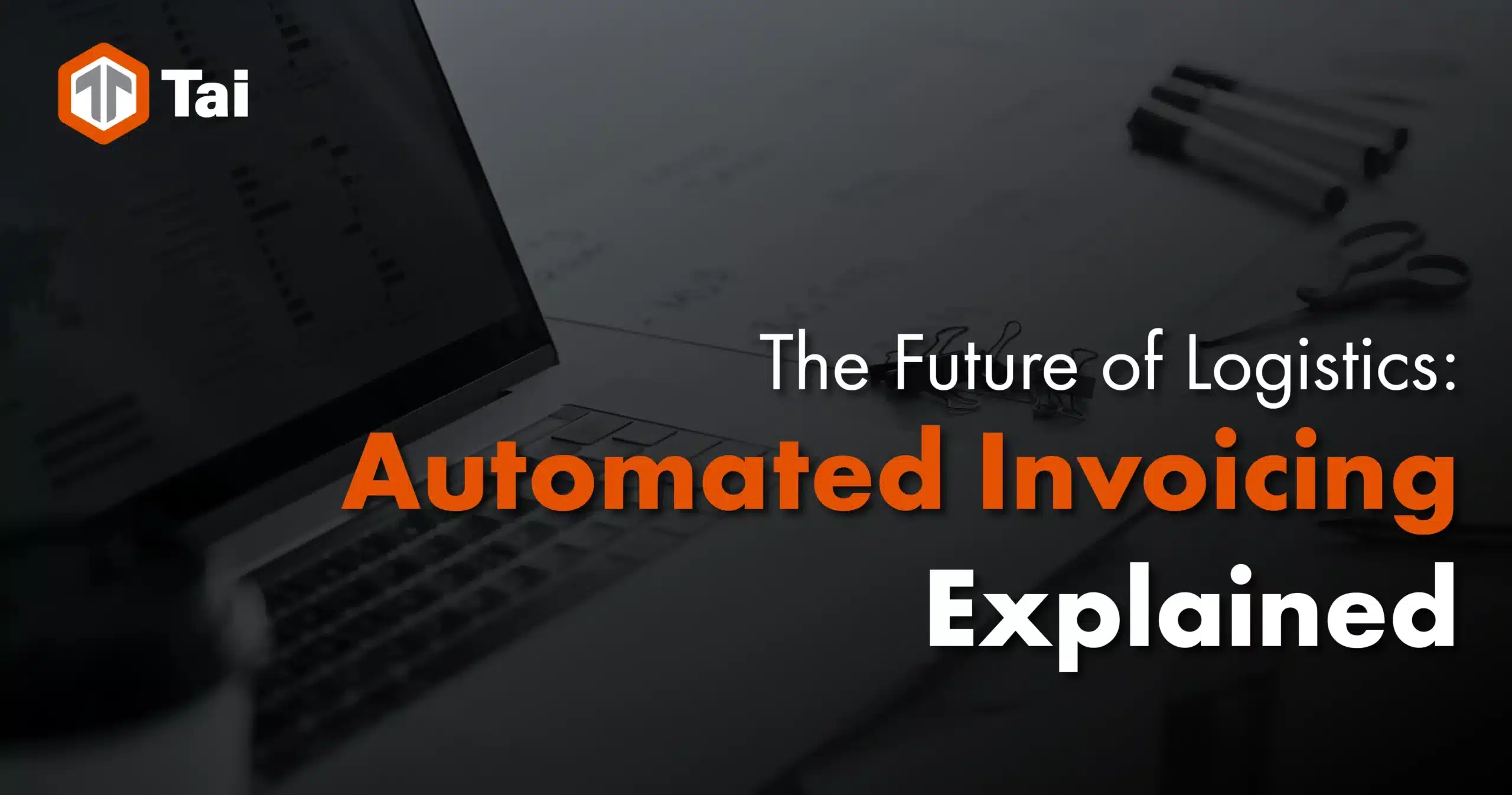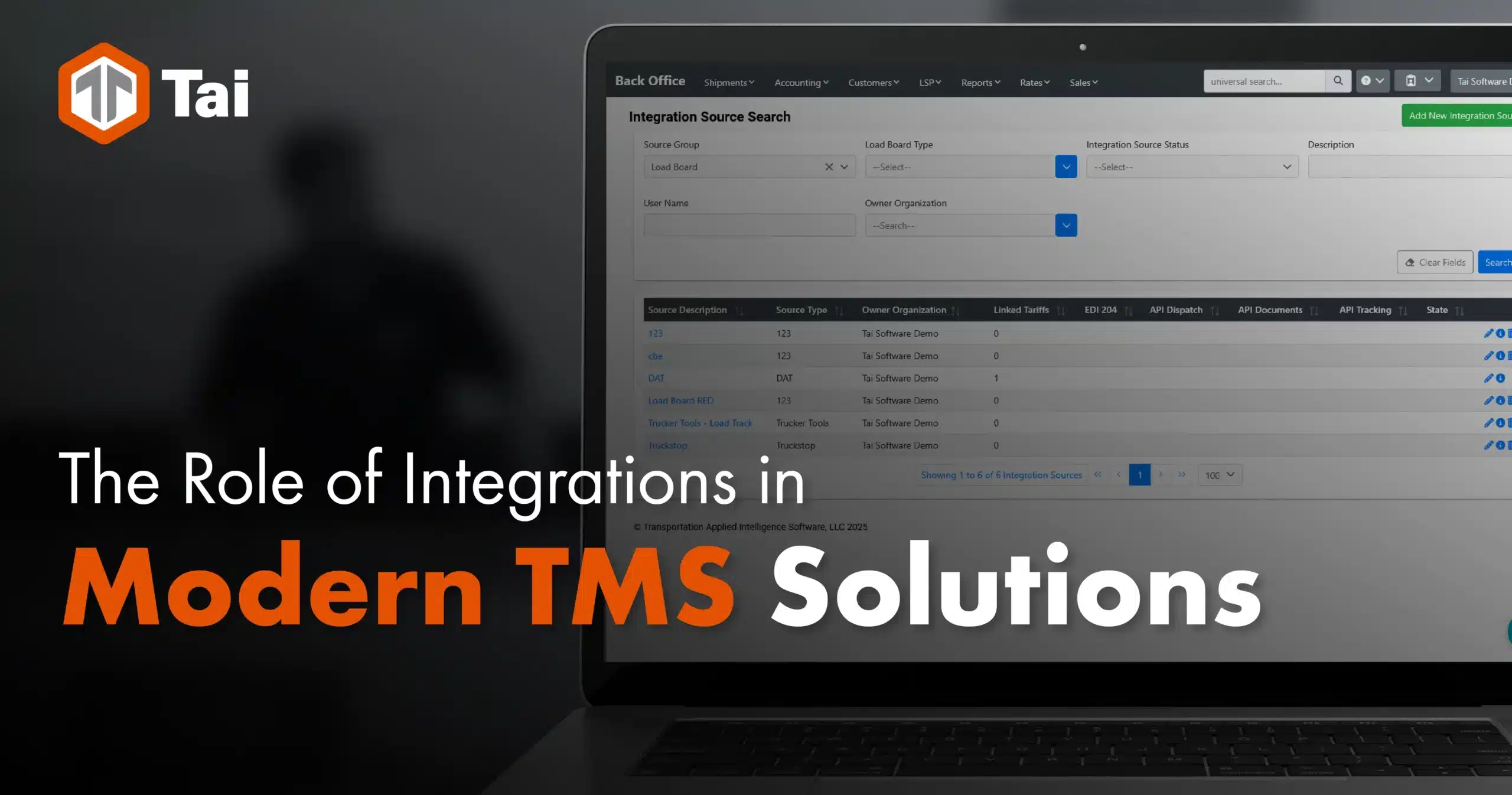Freight brokers, logistics companies, and businesses focused on growth and efficiency are continually seeking advanced solutions to streamline their operations. A Transportation Management System (TMS) is a vital tool in the logistics ecosystem. It not only optimizes transportation operations but also integrates various components to ensure seamless and efficient processes. Let’s explore how these key components drive operational excellence and transform logistics management.
1. Email Processing Tool – AI-Powered Freight Innovation
In the freight industry, managing vast volumes of email communications can be daunting. An advanced Email Processing Tool within a TMS can revolutionize this aspect by leveraging AI-powered freight innovation. Here’s an in-depth look at how this tool can optimize operations and transform logistics management:
AI-Powered Insights
Email communications in logistics often contain crucial information that can impact operations, from shipment details to customer inquiries and order confirmations. The AI-Powered Insights feature of an Email Processing Tool can significantly enhance operational efficiency by:
- Data Extraction: The tool uses artificial intelligence to scan and analyze the content of emails, extracting critical information such as shipment details, delivery instructions, and customer requirements. This automated data extraction eliminates the need for manual data entry, reducing human error and speeding up processes.
- Insight Generation: By compiling and analyzing the extracted data, the tool provides valuable insights that can inform decision-making. For instance, logistics managers can identify trends in delivery schedules, common customer concerns, and areas that need improvement—helping them make data-driven decisions to enhance efficiency.
- Predictive Analytics: Advanced AI algorithms can predict potential issues before they arise, such as delays or discrepancies in shipment details. This proactive approach enables companies to take preemptive measures, minimizing disruptions and maintaining smooth operations.
Automated Quoting
Generating quotes can be time-consuming and labor-intensive, especially when it involves sifting through numerous emails for relevant information. The Automated Quoting feature addresses this challenge by:
- Data Extraction: Automatically pulling shipment details, dimensions, and destination information from the emails, which are essential for creating accurate quotes.
- Quote Generation: Using the extracted data, the AI engine quickly generates quotes, considering various factors like distance, weight, and service levels. This automation drastically reduces the time and manual effort required, enabling quicker responses to customer inquiries.
- Consistency and Accuracy: By standardizing the quoting process, the tool ensures that all quotes are consistent and accurate, reducing the chances of miscommunication or errors. This consistency helps build trust with customers and enhances the company's reputation for reliability.
2. Operational Visibility – Revolutionize Shipment Creation
Operational visibility is crucial for managing shipments efficiently. A robust Transportation Management System (TMS) that offers enhanced visibility tools can revolutionize your shipment creation process and help you win more loads. Here’s an in-depth look at how operational visibility optimizes logistics management:
Real-Time Tracking
Real-time tracking is a game-changer in the logistics industry. It provides visibility into the location and status of shipments at any given moment, allowing for proactive management and quick resolution of issues. Here’s how it benefits operations:
- Live Updates: Real-time tracking ensures that you have the most current location data for each shipment. This allows logistics managers to keep tabs on where each load is at any point in time.
- Proactive Issue Resolution: By having real-time data, you can identify and address potential issues such as delays, detours, or other disruptions as they occur. This proactive approach minimizes the impact of unexpected events on your operations.
- Enhanced Customer Service: Providing customers with real-time tracking information enhances trust and satisfaction. Customers can track their shipments themselves, reducing the need for constant updates from support teams.
Performance Analytics
Performance analytics provide a comprehensive view of your logistics operations, allowing you to track and analyze key metrics. This information is invaluable for identifying areas that need improvement and optimizing operations. Here’s how it can benefit your business:
- KPI Tracking: Performance analytics enable you to track key performance indicators (KPIs) such as on-time delivery rates, average transit times, and cost per mile. Monitoring these KPIs helps you gauge the efficiency of your logistics processes.
- Identifying Bottlenecks: Detailed performance data allows you to pinpoint bottlenecks and inefficiencies in your operations. By understanding where delays and issues occur, you can take targeted actions to address them.
- Continuous Improvement: Regular analysis of performance metrics fosters a culture of continuous improvement. It encourages your team to strive for better performance and to implement best practices.
Stay Competitive
In a competitive market, staying ahead of the curve is essential. Leveraging advanced TMS automation tools ensures that you’re not held back by manual processes. Here’s how this can keep you competitive:
- Adaptability: Advanced TMS tools allow you to adapt quickly to changing market conditions and customer demands. This agility is crucial for maintaining a competitive edge. Dashboards: Provide real-time insights into key performance indicators (KPIs).
- Innovation:By adopting the latest automation and visibility tools, you position your business as an industry leader. This not only attracts more customers but also builds a reputation for innovation and excellence.
- Scalability: Modern TMS solutions are designed to scale with your business. As you grow, these tools can handle increased volumes and complexity without compromising on efficiency.
3. Integrations – Simplify Freight Brokerage Operations
Effective integrations with industry-leading tools and platforms are essential for simplifying freight brokerage operations. A TMS with robust integration capabilities offers the following benefits:
Seamless Data Flow
Seamless data flow is a fundamental benefit of integrating various tools and platforms within a TMS. Here’s how it enhances logistics operations:
- Automated Data Transfer: Integrations ensure that data is automatically transferred between different systems without requiring manual input. This eliminates the need for repetitive data entry tasks and reduces the time spent on administrative work.
- Error Reduction: Manual data entry is prone to errors, which can lead to inaccuracies and inconsistencies in shipment details, billing, and inventory management. Seamless data flow minimizes these errors, enhancing data accuracy and reliability.
- Real-Time Updates: Integrated systems provide real-time updates, ensuring that all stakeholders have access to the most current information. This real-time visibility allows for better decision-making and quicker responses to any changes or issues that arise.
- Streamlined Processes: By ensuring that information flows smoothly between systems, integrations streamline various processes such as order processing, shipment tracking, and billing. This efficiency leads to quicker turnaround times and improved operational productivity.
Enhanced Collaboration
Effective collaboration between carriers, shippers, and logistics providers improves overall efficiency and customer satisfaction. Integrations facilitate better communication and cooperation by:
- Unified Communication Channels: Integrated systems enable different stakeholders to communicate and share information through a single platform. This unification ensures that everyone is on the same page and reduces the chances of miscommunication.
- Shared Data Access: With integrated platforms, all parties have access to the same data and insights. This transparency fosters better cooperation and allows for more informed decision-making based on shared information.
- Issue Resolution: Integrations streamline the escalation and resolution of issues by ensuring that relevant information is readily accessible to all stakeholders. This quick access enables faster problem-solving and minimizes delays.
Extended Capabilities
Integrations with other industry tools enhance the functionality of your TMS, providing a more comprehensive solution for logistics needs:
- Expanded Functionalities: Integrations allow your TMS to offer features beyond its native capabilities. For instance, integrating with route optimization tools, invoicing platforms, and customer relationship management (CRM) systems can provide a more holistic solution.
- Scalability: As your business grows, integrated systems can scale with you. You can easily add or upgrade tools without disrupting your workflow, ensuring that your TMS can accommodate increased volumes and complexities.
- Custom Solutions: Tailored integrations allow you to create custom workflows and solutions that align with your specific operational needs. This customization enhances efficiency and provides a competitive edge.
4. Tai Marketplace – Grow Shipment Volumes
Tai’s Marketplace is an online, self-service tool that Tai customers can use to increase LTL shipment volumes by leveraging other broker’s discounts. Here’s what to expect:
Access Better LTL Shipping Rates
- Integrated with Industry Leaders: Gain access to vetted 3PLs bidding for your business, ensuring credibility, solvency, and excellent customer service.
End-to-End Automation
- Direct Carrier Integrations: Automate shipments from quote to delivery without manual intervention, ensuring real-time updates and fewer errors.
Instant Rating
- API Tariffs: Instantly compare LTL rates side-by-side within a single platform, empowering brokers with real-time data.
Automated Dispatching and Tracking
- Eliminate Manual Processes: Automate data entry, assignment, and logging for seamless shipment management.
Competitive Rates and Seamless Automation
- Shop Competitive Rates: Compare rates from numerous integrated brokerages.
- Real-Time Visibility and Notifications: Make informed decisions with continuos updates.
- Complete Automation: Manage shipments from quote to invoicing effortlessly.
- Advanced Analytics: Unlock insights for smarter decision-making.
Embrace Integration for Enhanced Efficiency
In conclusion, integrating key components within a TMS, such as Email Processing Tools, Operational Visibility, Integrations, and an Online Marketplace, significantly enhances logistics efficiency. These integrated systems provide real-time visibility, streamline processes, deliver cost savings, improve customer service, and offer scalability.
Tai TMS is a robust logistics intelligence platform crafted to save time and support the expansion of your operations. This multi-modal solution helps automate the shipment lifecycle for both FTL and LTL loads. With direct integrations with all major carriers and load boards, Tai TMS enables a seamless transition from quote to delivery with less manual intervention, allowing your company to focus its resources on growth.
- Comprehensive domestic freight management
- Optimized for speed and scalability
- Over 500 built-in integrations
By leveraging Tai Software’s comprehensive solutions, businesses can streamline and automate their shipping processes, enabling them to focus on growth and superior customer service.







